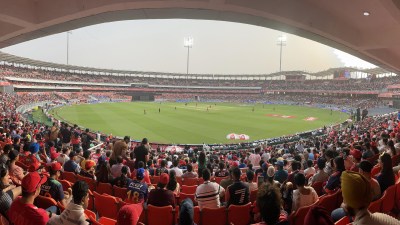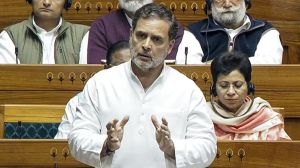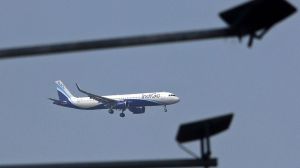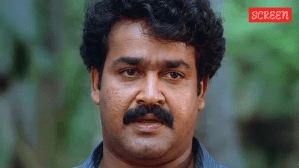Come home, boys
This past week, as the military operations in Bhutan cut away at the roots of the United Liberation Front of Asom, the people of Assam said ...

This past week, as the military operations in Bhutan cut away at the roots of the United Liberation Front of Asom, the people of Assam said something — by doing nothing. ULFA called a bandh but, unlike previous such calls, this one was a failure. Gone was the critical mass that, covertly or overtly, believed in ULFA and its demand for a sovereign Assam. After years, ULFA had been rebuffed by the very people it claimed to speak for.
There was a time when womenfolk of an entire village would gherao the nearest army camp to secure the release of a local boy, arrested for ULFA links. Such has been the change that the very village folk have, in the past five years, not only handed over at least 100 such ‘‘boys’’ to the authorities but also killed some of them in an eruption of revulsion.
‘‘ULFA in fact should have understood the warning signal the day the government of India started negotiating with the NSCN (IM),’’ says Hiren Gohain, among Assam’s leading intellectuals and political thinkers, in a reference to New Delhi’s talks with the longstanding Naga separatist group.
Though ULFA survived the first military crackdown in November 1990 as well as the second in September 1991, the Bhutan flush-out has come as a major setback. Paresh Barua, the outfit’s commander-in-chief, has repeatedly pleaded with the Bhutanese government for a ceasefire.
‘‘Organisations that see sovereignty as the final goal are often found to come to negotiations and arrive at a compromise. Sovereignty after all is not child’s play,’’ remarked Amar Asom, a leading vernacular daily this past week, analysing the Bhutan operations.
The popular mood in Assam clearly wants an end to strife, unrelenting since ULFA was born. There is no visible perturbation over the Bhutan operations.
Family members of many ULFA leaders have expressed their hope that their sons will now come home. ‘‘I wonder why such a huge Indian army and such a powerful government cannot find out my son and bring him back. Bring him to me. And if he does not listen to me, then I shall definitely hand him over to the police,’’ says an illiterate Miliki Barua (89), the mother of Paresh Barua. The old lady weeps every time a reporter visits her in village Jerai Chakalibhoriya, about 20 km east of Dibrugarh.
She’s lost track of just how many times her house has been raided by the security forces. Some uniformed men came one day in two Tata Sumos. They picked up her younger son. He was found lying dead the next morning, near the highway.
As news of the Bhutan operations came in, a simmering emotion burst out in many households. ‘‘Enough is enough. I want to see my son alive and out of the ULFA,’’ says Sajyabala Kalita, mother of ULFA armed wing deputy C-in-C Raju Barua, alias Hitesh Kalita, of village Bahjani in Nalbari. She has not seen her son for 12 years: ‘‘I don’t know what made him join ULFA. I understand the Assamese people have been wronged by Delhi, but I don’t support the path they have taken.’’
The All Assam Students’ Union, Asom Jatiyabadi Yuva-Chatra Parishad and the Asom Gana Parishad, the three pillars of regionalism in the state, are however hedging bets. All three, including the AGP — the party that once ruled Assam — have demanded a halt to the operations and advocated dialogue with ULFA.
Chief Minister Tarun Gogoi (Congress) says the ULFA cadre should not be killed. ‘‘It will be better if they return home and surrender. After all they are our boys,’’ he adds.
Menawhile, in a hundred villages across Assam mothers keep watch — waiting for the prodigal to come home.
- 01
- 02
- 03
- 04
- 05































